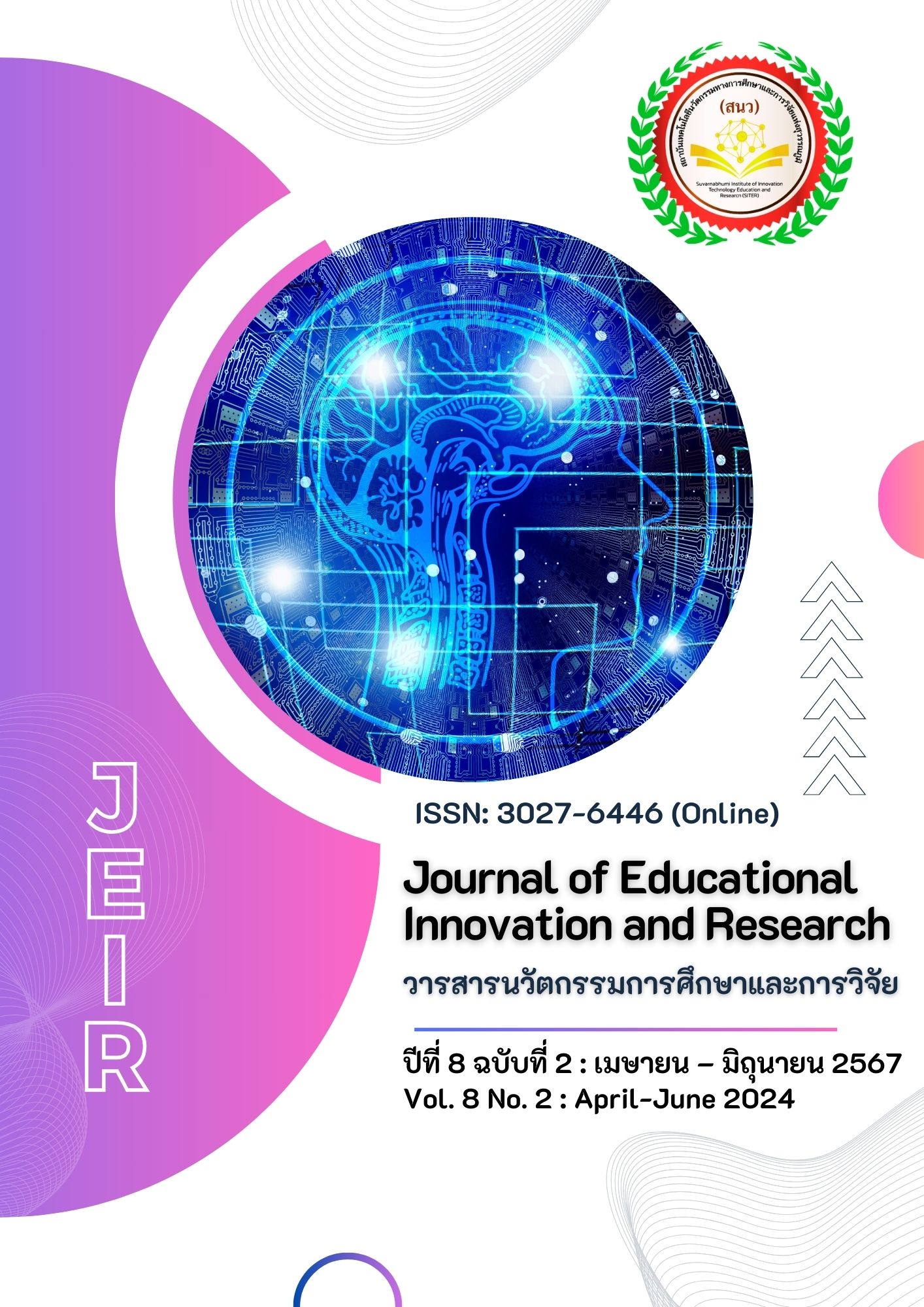ผลการจัดการเรียนรู้โดยใช้งานทางคณิตศาสตร์เพื่อส่งเสริม มโนทัศน์ทางคณิตศาสตร์ เรื่อง ร้อยละ ของนักเรียนชั้นประถมศึกษาปีที่ 5
Main Article Content
บทคัดย่อ
การวิจัยในครั้งนี้มีวัตถุประสงค์ 1) เพื่อศึกษามโนทัศน์ทางคณิตศาสตร์ และ 2) เพื่อศึกษาผลสัมฤทธิ์ทางการเรียนคณิตศาสตร์ เรื่อง ร้อยละ ของนักเรียนชั้นประถมศึกษาปีที่ 5 หลังการจัดการเรียนรู้โดยใช้งานทางคณิตศาสตร์เพื่อส่งเสริมมโนทัศน์ทางคณิตศาสตร์เทียบกับเกณฑ์ร้อยละ 60 ประชากรเป็นนักเรียนชั้นประถมศึกษาปีที่ 5 ภาคเรียนที่ 2 ปีการศึกษา 2564 จำนวน 13 คน เครื่องมือที่ใช้ในการวิจัย คือ 1) แผนการจัดการเรียนรู้ 2) แบบทดสอบวัดมโนทัศน์ทางคณิตศาสตร์ เรื่อง ร้อยละ และ 3) แบบทดสอบวัดผลสัมฤทธิ์ทางการเรียนคณิตศาสตร์ เรื่อง ร้อยละ วิเคราะห์ข้อมูลโดยใช้ค่าร้อยละ ค่าเฉลี่ยเลขคณิต ส่วนเบี่ยงเบนมาตรฐาน และนำค่าเฉลี่ยของคะแนนที่ได้เทียบกับเกณฑ์ร้อยละ 60
ผลการวิจัยพบว่า 1. มโนทัศน์ทางคณิตศาสตร์ เรื่อง ร้อยละ ของนักเรียนชั้นประถมศึกษาปีที่ 5 หลังการจัดการเรียนรู้โดยใช้งานทางคณิตศาสตร์สูงกว่าเกณฑ์ร้อยละ 60 โดยคะแนนเฉลี่ยคิดเป็นร้อยละ 73.87 ของคะแนนเต็ม นักเรียนส่วนใหญ่มีความเข้าใจมโนทัศน์ การเขียนร้อยละหรือเปอร์เซ็นต์และมโนทัศน์ ร้อยละของจำนวนนับเป็นอย่างดี สำหรับมโนทัศน์ในเรื่องโจทย์ปัญหาร้อยละ โจทย์ปัญหาลดราคา และโจทย์ปัญหากำไรและขาดทุน พบว่านักเรียนกลุ่มที่ได้คะแนนน้อยมีอุปสรรคในการคิดคำนวณและการคิดวิเคราะห์ ทำให้การสรุปคำตอบคลาดเคลื่อนและไม่ถูกต้อง และ 2. ผลสัมฤทธิ์ทางการเรียนคณิตศาสตร์ เรื่อง ร้อยละ ของนักเรียนชั้นประถมศึกษาปีที่ 5 หลังการจัดการเรียนรู้โดยใช้งานทางคณิตศาสตร์ สูงกว่าเกณฑ์ร้อยละ 60 โดยคะแนนเฉลี่ยคิดเป็นร้อยละ 75.50 ของคะแนนเต็ม
Article Details

อนุญาตภายใต้เงื่อนไข Creative Commons Attribution-NonCommercial-NoDerivatives 4.0 International License.
เอกสารอ้างอิง
Cai, J. & Lester, K. (2010). Why is teaching with problem solving important to student Learning. National Council of Teachers of Mathematics.
Henningsen, M. & Stein, M.K. (1997). Mathematical Tasks and Student Cognition: Classroom-Based Factors That Support and Inhibit High-Level Mathematical Thinking and Reasoning. Journal for Research in Mathematics Education, 28(5), 524-549.
Kaewmeechai, N. (2020). Hands-On Learning Approach with Tasks for Grade 5 Students’ Mathematical Creativity in Fractions and Mixed Numbers [Master’s Independent Study, Naresuan University].
Mahavijit, P. (2014). How to ask questions in a math classroom. IPST Magazine,42 (188), 22-26.
Makanong, A. (2014). Mathematics for secondary school teacher. Faculty of Education, Chulalongkorn University.
Makanong, A. (2016). Mathematical process skills: Developing for development (3rd ed.). Faculty of Education, Chulalongkorn University.
Moothummachai, N. (2020). Promoting Mathematical Reasoning Abilities in Relations and Functions of Grade 10 Students by Using Mathematical Tasks [Master’s Thesis, Chiang Mai University].
Stigler, J.W., Gallimore, R., & Hiebert, J. (2000). Using Video Surveys to Compare Classrooms and Teaching Across Cultures: Examples and Lessons from the TIMSS Video Studies. Journal for Research in Educational Psycgologist, 32(2), 87-100.
Udinkaew, C. (2016). Designing Mathematical Tasks for Developing Mathematical Thinking of Upper Secondary School Students in the Classroom Taught Through Open Approach [Master’s Thesis, Chiang Mai University].


